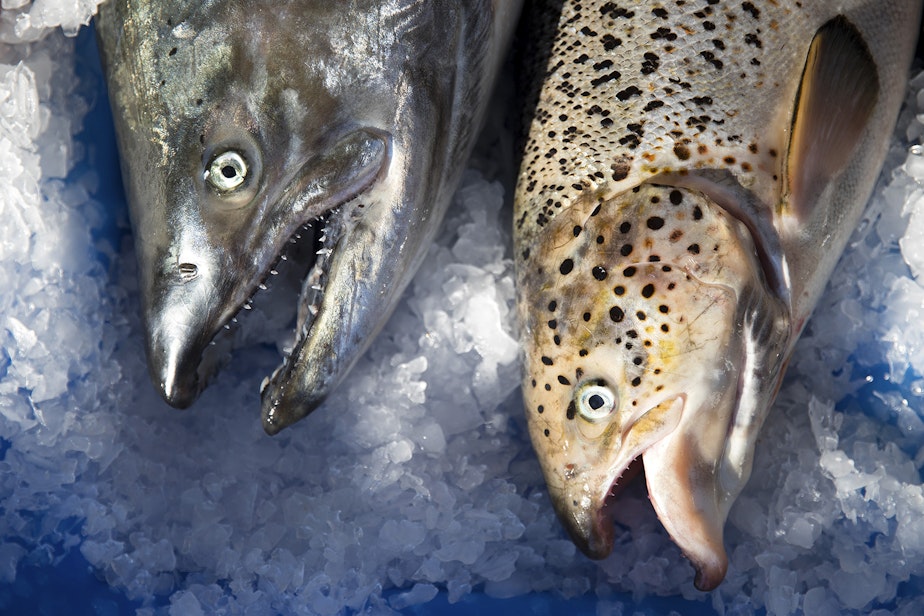Those farmed salmon have reached the Pacific Ocean. (That's not good.)

The farmed Atlantic salmon that spilled into Puget Sound would have gone to market soon.
More than 300,000 were in a privately owned net off of Cypress Island when the net broke Aug. 19.
Washington state officials say the fish were scheduled for federal inspections this week, the last step before the company would send them to market.
Cooke Aquaculture, the salmon owner, and Washington’s Department of Fish and Wildlife maintain that the salmon are safe to eat. Ron Warren, head of WDFW’s Fish Program, has a different concern: whether native salmon are threatened. For that reason, they’re testing the farmed fish for viruses.
Warren: "The state and the tribes are trying to collect and do some virus testing just to assure that the fish were healthy, so that other fish species in the marine environment are safe."
Sponsored
He says test results should be out this week. Of primary concern are chinook salmon, which are listed as threatened on the federal endangered species list.
Warren says the influx of thousands of invasive salmon could impact native fish.
Warren: "We have approximately 15 to 25 percent fewer chinook than when they were listed in 1999. And everything we do in additional to our normal fishery patterns adds to that burden."
He says he expects the Atlantic salmon to reach Puget Sound river systems and the coastal system by this fall.
Warren: “We have seen fish about 60 miles south of the net pen complex; we know we have fish as far north as the U.S./Canadian border, and we know we have fish as far west as Sekiu" — a fishing town just shy of the Pacific Ocean.
Sponsored
The group Wild Fish Conservancy plans to sue Cooke Aquaculture for alleged violations of the federal Clean Water Act. In addition, the Lummi Nation has declared a state of emergency over concerns about chinook salmon spawning beds.
The company has not responded to a request for comment.

